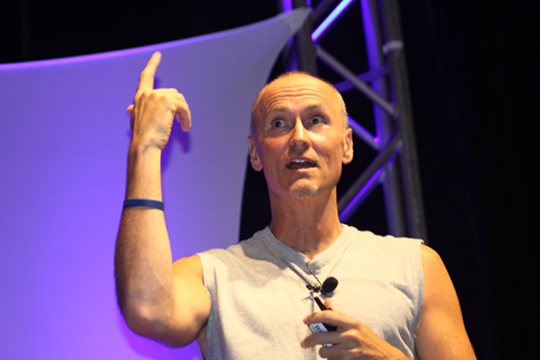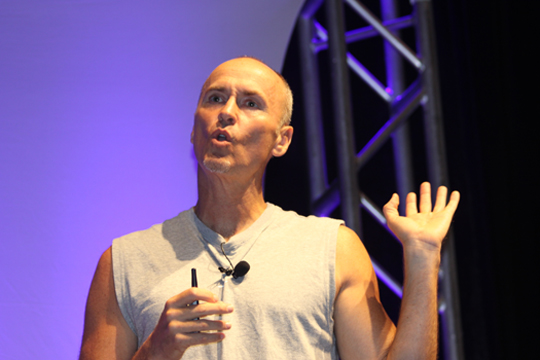LOHAS is an acronym for Lifestyles of Health & Sustainability, a values-driven consumer cohort identified in the late 1990s. Consumers described as LOHAS are passionate about sustainability, health and wellness, personal development, resource conservation, corporate responsibility, social justice, and natural and organic products. They annually purchase $350 billion in goods and services worldwide.
Early adopters by nature, LOHAS consumers shop for energy-efficient electronics, green household products, natural personal products, organic foods, hybrid automobiles, green building products, socially responsible investments, and alternative health care services.
According to the Natural Marketing Institute (NMI), a Pennsylvania-based company that annually conducts original research examining this segment, LOHAS consumers comprise 18 percent of the U.S. population. The boomer generation over-represents this segment: 21 percent of Boomers are also LOHAS consumers.
Steve French, executive vice president and managing partner of NMI, emphasizes a significant correlation between LOHAS and post-50 consumers:
"Many Americans reached adulthood in the 1960s and 1970s during the emergence of a global environmental awareness and greater focus on personal health, and they maintain those same values today. The major difference today is that they have considerable financial resources and commitment to search for and buy products and services that serve their long-term environmental and health goals."
LOHAS leaders, natural products entrepreneurs and corporate executives gather every June in Boulder, Colo., for an intense three-day Forum. This intimate conference blends presentations from personal development educators, academicians exploring the edges of sustainable technologies, corporate pioneers who have embraced LOHAS values, and inspirational entertainers.
Representing widely diverse industries and age groups, attendees nevertheless share a passion for creating a healthier, more sustainable future. For example, one post-50 speaker at the 2012 Forum is busy teaching new conceptions of corporate leadership, insights he achieved through much personal distress and soul-searching.
In 1987, at age 26, Chip Conley started Joie de Vivre (JDV), a hospitality company based in San Francisco. He began by transforming a squalid 1950's Tenderloin District dive into Phoenix Hotel, a celebrated rock 'n' roll destination catering to celebrities such as David Bowie, Linda Ronstadt and Nirvana.
JDV then expanded into a collection of more than 35 award-winning hotels, restaurants and spas, with more than 3,000 employees -- with each property conveying a unique persona often influenced thematically by a popular magazine.
Author of several best-selling business books, his most recent The New York Times best-seller is titled Emotional Equations: Simple Truths for Creating Happiness + Success.

Bounding onto a general session stage, he announced: "What I've learned in 25 years of being a CEO, from a startup to growing into a big company, is that we as leaders are the emotional thermostats of the groups that we lead."
Chip then disrobed, literally and figuratively. After stripping off his business suit onstage to reveal a runner's outfit underneath, he shared several moving stories about his recent trials, similar in essence to challenges experienced by many post-50 adults because of aging: with advancing age often comes loss and illness.
His struggling company almost ran out of money during the 2008 downturn. His son was wrongly incarcerated for eight months in San Quentin. A long-term loving relationship ended, and his closest friend, also named Chip, committed suicide. He felt anguish in his heart, imprisoned by the responsibilities of being a CEO. While giving a speech in Saint Louis about self-actualization, his heart stopped beating. An EMT's cardiac monitor projected a grim prognosis: his heart flat-lined eight more times.
In his travel backpack he had carried a book titled Man's Search for Meaning, written by the influential 20th century psychiatrist and Holocaust survivor Dr. Viktor Frankl. While reading this book during recovery, Chip came upon a poignant passage: "Between stimulus and response, there is a space. In that space is our power to choose our response. And in our response lies our glory and our freedom."
Chip then experienced an epiphany: suffering is part of the human condition; live long enough and afflictions will come. But then he understood his first emotional equation: despair equals suffering minus meaning. Thus, while meaning does not stop suffering, it can ameliorate despair, as Dr. Frankl discovered in the horrific Nazi concentration camps.
For 24 years Chip Conley performed successfully as a CEO, and that responsibility almost killed him because he was distraught about executing his duties. But underneath the suit was a human being full of emotions. And he finally realized that Chief Executive Officers are really Chief Emotions Officers. CEOs are the emotional thermostats for the people they lead.
Effective leaders make a difference by understanding what's going on under the surface; they allow themselves to emotionally strip away protective layers. As Dr. Abraham Maslow, founder of humanistic psychology and creator or the famous "hierarchy of needs," wrote in his diary: "Great leaders create great psycho-hygiene." Thus, leaders are responsible for creating organizational catharsis. And the best of them share daily gratitude with employees for minor accomplishments and company milestones.
At the LOHAS Forum, Chip Conley conveyed intuitive emotional equations that can guide present and future CEOs. And in doing so, this "undressed speaker" modeled resilience typical of those who have been tested, gained wisdom, and become resolute to transfer survival insights across generations.

His lessons are about a new conscious capitalism emerging from the LOHAS movement, fostering egalitarian leadership with a focus on stakeholders -- creating organizations to serve the self-actualizing and health-seeking quest of values-driven consumers.
